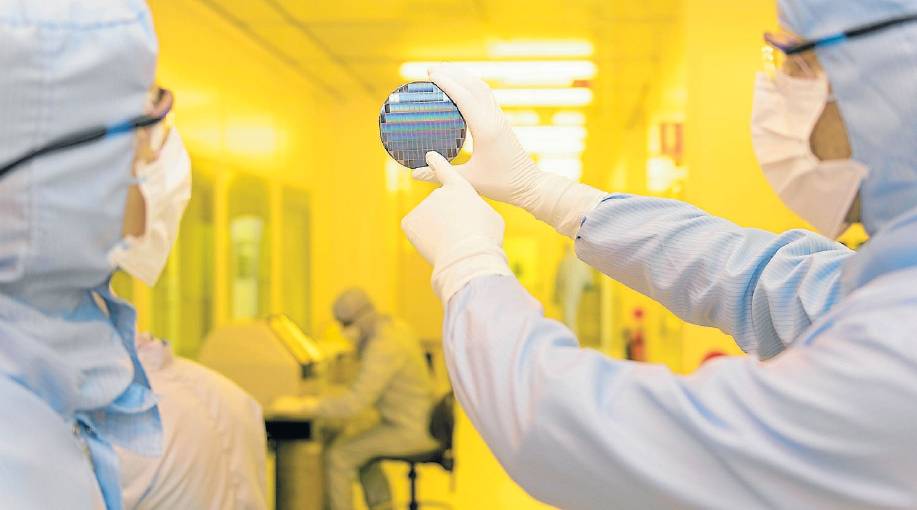Leaping towards a new information age
Quantum computing promises to redefine the future of computing as well as drive new breakthroughs in virtually every industrial sector including biotechnology and pharmaceuticals, biochemistry, transportation, mining, materials development, telecommunications and finance.
Paris-based quantum computing analyst Philippe Nieuwbourg says quantum computing developments are on the verge of “a scalable, fault-tolerant quantum computer that can tackle problems unmanageable to current supercomputing capabilities”.
“In a way that was unheard of five years ago, quantum physicists are now partnering with corporate tech giants to develop quantum computing capabilities and technologies as the foundation of a second information age,” he writes in his online journal Quantaneo.
“Advances in quantum computer design, faulttolerant algorithms and new fabrication technologies are now transforming this ‘holy grail’ technology into a realistic program poised to surpass traditional computation.”
Management consulting firm McKinsey & Co describes quantum computing as a “fundamentally different approach to computation” compared with the calculations performed on today’s laptops, workstations and even mainframes.
“[Quantum computing] won’t replace these devices, but by leveraging the principles of quantum physics it will solve specific, typically very complex problems of a statistical nature that are difficult for current computers,” the authors of ‘A game plan for quantum computing’ write in the March issue of McKinsey Quarterly.
“Solving the impossible in a few hours of computing time, finding answers to problems that have bedevilled science and society for years, unlocking unprecedented capabilities for businesses of all kinds — those are the promises of quantum computing.”
A report released in May by the CSIRO, Growing Australia’s Quantum Technology Industry, expects that the commercialisation of quantum technologies will create an $86 billion global industry by 2040.
Noting that Australia is a pioneer in quantum technology development with world-class research capabilities, the CSIRO estimates that Australia’s quantum technology industry could generate $4 billion revenue and create 16,000 new jobs by that time.
One Australian company with an international reputation in quantum technology is ASX-listed Archer Materials, which is developing advanced materials for use in quantum technology, biotechnology and lithium-ion batteries.
Archer CEO Dr Mohammad Choucair says “materials are the tangible physical basis of all technology”.
The materials developed by Archer include carbon-based qubits for quantum computing, graphene-enhanced biosensors and graphitic battery anodes.
Archer’s flagship technology is the 12CQ quantum processor chip. The company is developing the patented carbon-based materials technology, invented by Choucair, which can be used to create a quantum processor chip (12CQ) proven to be capable of operating at room temperature rather than the freezing temperatures normally required.
A qubit processor is the most crucial hardware component of quantum computers, which encode information as quantum bits (qubits). Qubits represent atoms, photons or electrons and their respective control devices which, when working together, have the potential to be millions of times more powerful than today’s supercomputers.
“Current quantum computing technologies are limited because they use qubit processors that can only operate at very low temperatures,” Choucair says.
“The successful development of our 12CQ room-temperature qubit processor chip has the potential to integrate quantum computingpowered technology with modern electronic devices such as laptops and mobile phones.”
The quantum computing industry forms a niche – but rapidly growing – part of the global semiconductor industry. According to Fortune Business Insights, the global semiconductor market should reach $US730.29 billion by 2026.
The work on the 12CQ chip is led by Choucair and Archer’s quantum technology manager, Dr Martin Fuechsle, who is internationally recognised for developing the world’s smallest transistor, a “single-atom transistor”.
An exclusive licensing agreement allows Archer to develop and commercialise the 12CQ technology. It has been assembling chip prototypes since mid-2019 and intends eventually to commercialise the technology through licencing and direct sales channels.
That goal took a giant step towards being realised when Archer signed an agreement with IBM to join its prestigious IBM Q Network, a global collaboration working on the advancement of quantum computing.
As an “ecosystem partner” in the IBM Q network, Archer has access to IBM’s quantum computing expertise and resources.
“12CQ is a world first and the agreement with IBM positions us to potentially scale our competitive advantage globally and to realise our vision of the widespread adoption of quantum computing,” Choucair says.
Founded in Adelaide, the company began trading on the ASX as Archer Exploration in 2007. It became Archer Materials last year to reflect its growing business units centred on materials discovery and “deep technology” development.
“As a materials technology company, we have two primary but related business functions, minerals exploration and materials technology, with a clear commercial pathway to revenue and profitability growth for both,” Choucair explains.
“Archer is dedicated to building an industryleading materials technology company, which involves materials discovery and the development of innovative deep technology.
“Our exciting materials technology developments have the potential to make a major impact on the global markets that emerge from the new information age.”

